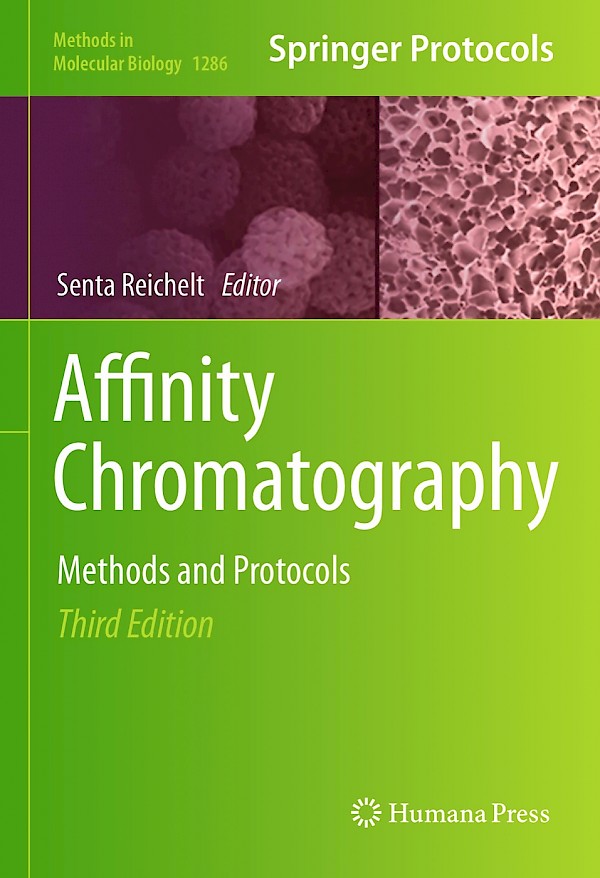News

Thursday, June 11, 2015
Synthesis and characterization of molecularly imprinted polymer embedded composite cryogel discs: application for the selective extraction of cypermethrins from aqueous samples prior to GC- MS analysis
Molecularly imprinted particles embedded composite cryogel discs specific for a-cypermethrin and b- cypermethrin were prepared. Two different types of imprinted particles were embedded into cryogel to prepare composite cryogels specific for two isomers of cypermethrin simultaneously. Adsorption studies revealed that MIP is extremely selective for a-cypermethrin and b-cypermethrin with outstanding adsorption capacity.
…Read More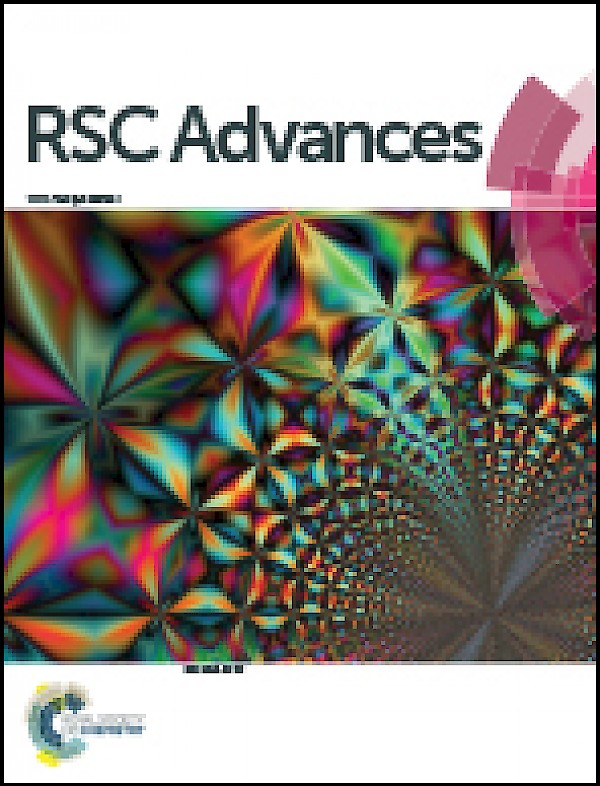
Thursday, June 11, 2015
Synthesis and characterization of molecularly imprinted polymer embedded composite cryogel discs: application for the selective extraction of cypermethrins from aqueous samples prior to GC- MS analysis
Read More
Thursday, June 11, 2015
Molecularly imprinted hydrophobic polymers as a tool for separation in capillary electrochromatography
The use of molecular imprinted polymers (MIPs), which provides a means for preparing stationary phases with predetermined selectivity for a target molecule in capillary electrochromatography (CEC), is attractive because it combines selectivity, higher separation efficiency and shorter analysis time. A bisphenol A (BPA)-imprinted monolithic capillary BPA/PMAPA column was synthesized for the selective separation of bisphenol A (BPA) from aqueous solutions containing the competitor molecule phenol (PH), which is similar in size and shape to the template molecule. BPA-imprinted monolithic column was prepared in the presence of the template molecule, BPA, which results in the formation of recognition cavities complementary to the template molecule, after the removal of template molecule.
…Read More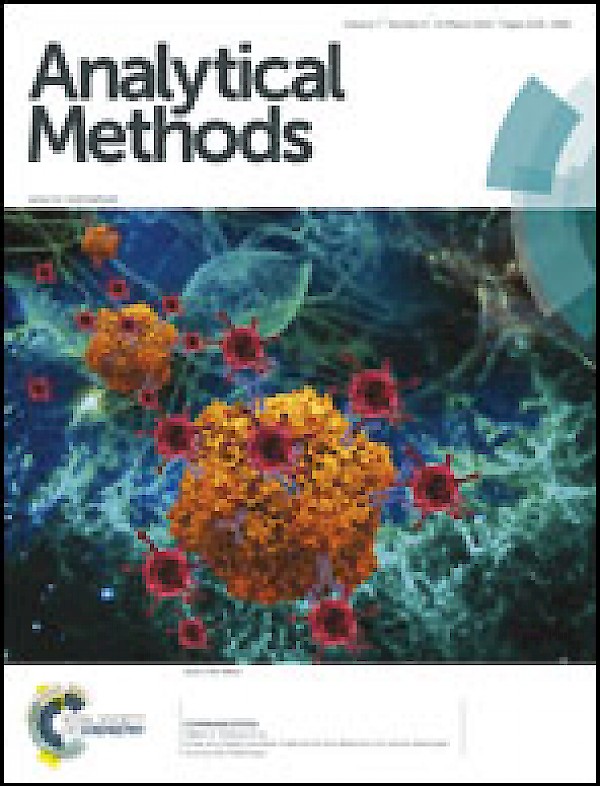
Thursday, June 11, 2015
Molecularly imprinted hydrophobic polymers as a tool for separation in capillary electrochromatography
Read More
Thursday, June 11, 2015
A New Affinity Separation Medium: Supermacroporous Cryogels
Protein separation has been the most challenging issue of biochemists since the Antoine Franc ̧ois, comte de Fourcroy’s first attempts to isolate some proteins from plants by precipitation in 1789. Protein purification methods then developed simulta- neously with the deep understanding of the properties and the functions of proteins. One of the most important milestones in the history of protein purification is the development of ‘chromatography’ in 1903 by Tswett.1 Since then, various forms of chromatography have become a powerful and essential tool for the separation of biomolecules in combination with other techniques such as precipitation and ultracentrifugation or even by only itself.
…Read More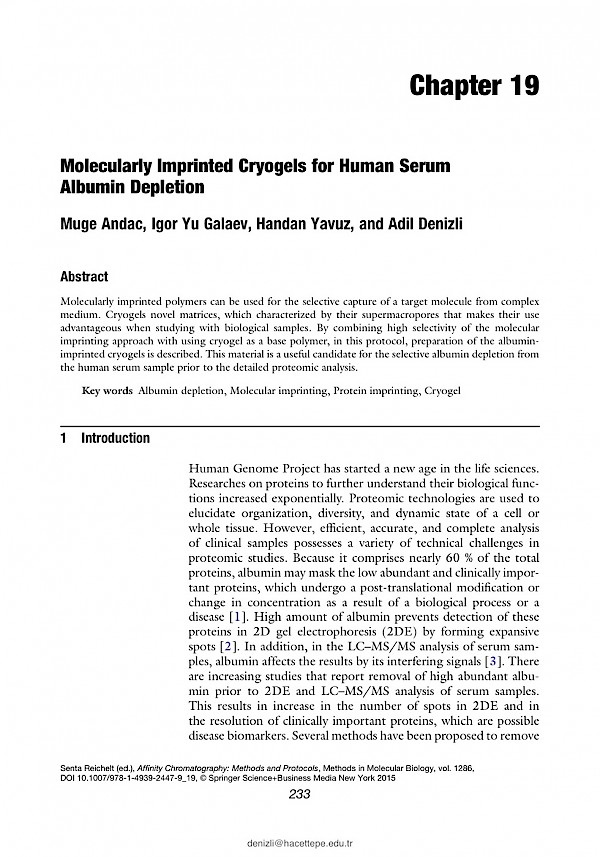
Monday, April 6, 2015
Affinity Chromatography Methods and Protocols 3rd Ed.
Antibody Purification from Human Plasma by Metal-Chelated Affinity Membranes and Molecularly Imprinted Cryogels for Human Serum Albumin Depletion
…Read More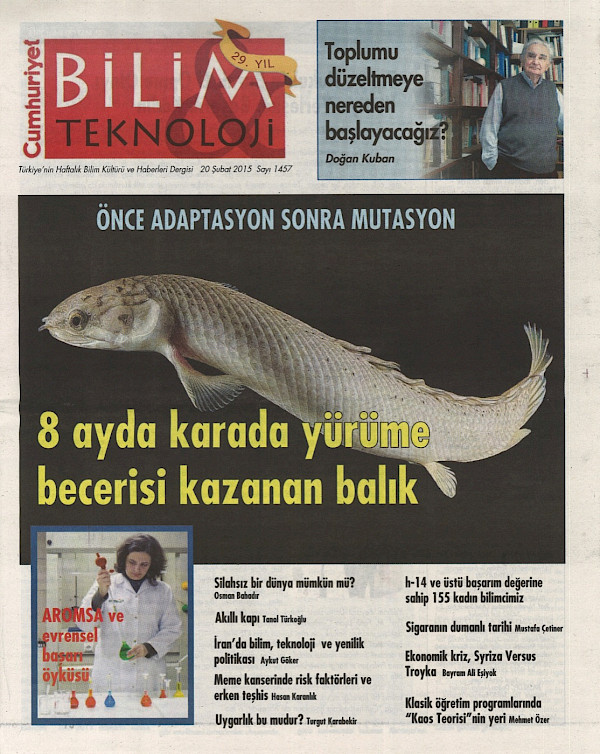
Tuesday, March 24, 2015
h-15 ve Üstü Başarım Değerine Sahip 155 Kadın Bilimcimizin Son Listesi
CBT 1457/20 Şubat 2015
Prof. Dr. Mehmet Doğan ve Prof. Dr. Mustafa Soylak’ın büyük özverileriyle, WOS indekslerini inceleyerek hazırladıkları h değerine göre başarılı bilim insanlarımızın, bu kez tamamen kadınları kapsayan listesi.
…Read More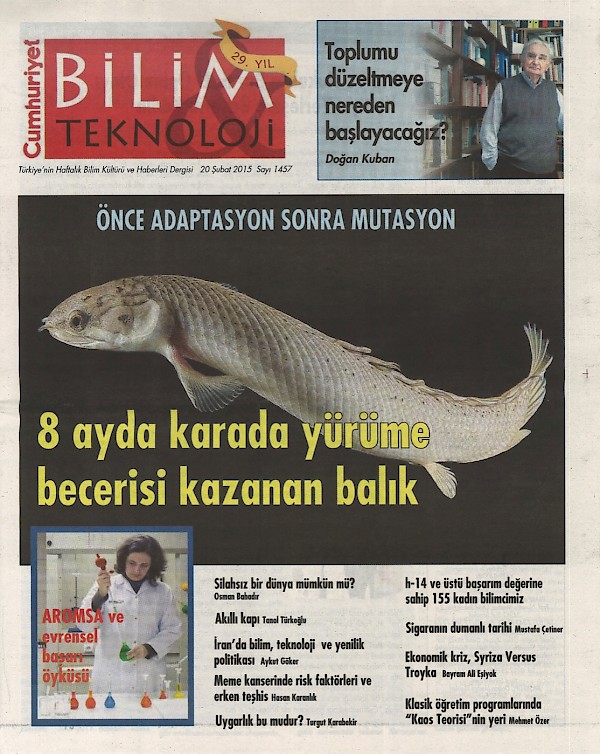
Tuesday, March 24, 2015
h-15 ve Üstü Başarım Değerine Sahip 155 Kadın Bilimcimizin Son Listesi
CBT 1457/20 Şubat 2015
Read More
Tuesday, March 24, 2015
h-20 ve Üstü Değerine Göre Yurtiçi ve Yurtdışı Başarılı 358 Bilimcimiz
CBT 1456/13 Şubat 2015
Son liste Prof. Dr. Mehmet Doğan ve Prof. Dr. Mustafa Soylak’ın büyük özverileriyle, WOS indekslerini inceleyerek hazırladıkları, ilki 10 Ekim 2014 tarihinde dergimizde yayımlanan, ama ek listelerle sürekli tamamlanan, h20 ve üstü değerlerine sahip bilim insanlarımızın, yeni eklemelerle son ve toplu halde listesi.
…Read More

